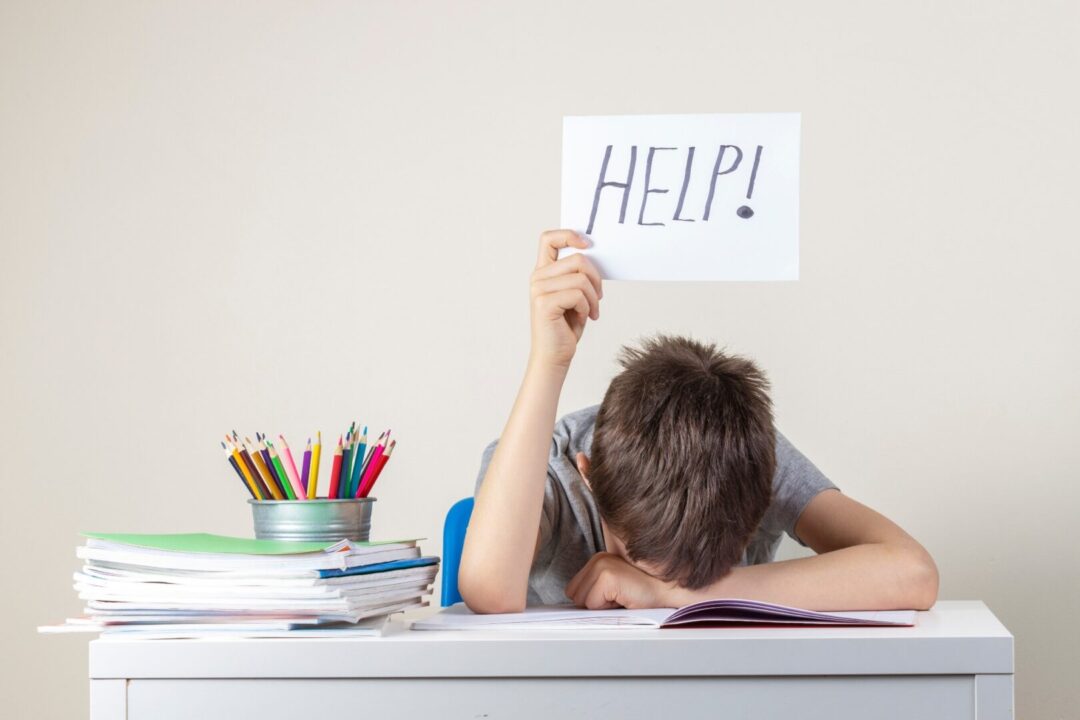Ever stared at a parent for ‘allowing’ his or her child to throw a tantrum in the restaurant or supermarket? Many will be quick to blame the parent for not being able to control his or her child but in actual fact, the parent was probably trying to establish some limits.
When it comes to addressing a child’s behaviour, everyone thinks that they’re an expert at parenting. However, when it comes to parenting his or her own child, it’s a whole different story!
Ultimately it’s always easier to look at the fault of other parents than to look at yours. Let’s be honest here, perfect parenting does not exist. All parents learn from personal experiences and from those around them but there are some common mistakes that are trending in modern times that should be avoided. We’ll tell you why it should not be practiced and how you should tackle the situation instead!

MISTAKE #1 STOP BEING A BIG BULLY
Some parents tend to control their children a little too much and in a rather intimidating manner. This includes overwhelming your child with orders, threatening them with violence and
speaking to your child in a harsh tone to scare them. Instead of helping your child grow into a healthy and happy individual as you might think that it would help them to stay away from danger and trouble, this could backfire. As much as you might get your way, being a bully at home can cause your child to suffer.
The damage: Your child might end up with low self-esteem and anxiety issues. They could also have trouble trusting others and end up being filled with constant fear.
HOW TO AVOID?
Allow your child to express his or her individuality. Remember, speaking in harsh tones or bossing your child around is only a temporary solution. Your actions can affect your child’s performance at school too and in the long run, you will not be helping your child to learn and grow.
MISTAKE #2 GIVING IN AND TRADING THIS FOR QUIET TIME
From wanting candies to having more phone time than promised, many parents choose to give in to the demands of their child for some quiet time. Yes, we absolutely understand that sometimes, all you want is just 20 minutes of peace and quiet or to avoid the hassle of your child throwing a fuss for not getting something he or she demands.
The damage: Each time you give in to your child just because you would like for your child to be quiet, your child will learn that this strategy works and will do it again and again.

HOW TO AVOID?
The best way is to help children understand why you’re not going to buy the item for your child at that moment. This will require patience (just like every other parenting moment) and probably countless rounds of repeating yourself each time your child attempts to execute this strategy.
Be consistent and your child will learn that this is not going to work. Alternatively, as this usually happens when you’re shopping, you could do your grocery runs while your child is at play school or having items delivered to your doorstep might give you some peace and quiet too!
MISTAKE #3 NOT FOLLOWING THROUGH WITH CONSEQUENCES
In every household, limits are set and when a child goes over the limit, there are consequences that she or he will have to face. As parents, sometimes you might get too busy or you may be distracted with something and hence, you choose to let go of the fact that your child misbehaved and the consequences do not follow through.
The damage: When consequences are set, it’s important to keep to your word and follow through as this will help your child understand that with certain wrong actions, comes consequences. When consequences are not put into place all the time, your child will discover that at times limits can be pushed and eventually control is lost on your end.
HOW TO AVOID?
Be consistent. If your child has gone beyond the limits that you’ve set, you’ll need to apply the consequences. It’s important to also ensure that your partner as well as your child’s caregiver, if any, does the same regularly.

MISTAKE #4 IGNORING LEARNING CHALLENGES

In many cases, learning and behavioural challenges are often associated with an undiagnosed learning difficulty. You may hear children around you acing their exams but your child seems to be left behind in his/her academics. Impatient parents might be quick to pass this off as being lazy or having poor attention span due to a lack of interest in their academics. However, symptoms as such could very well be the case of a learning disability and if detected early, you child too can excel in all areas of life.
The damage: Assuming that your child is lazy or does not have an interest in school without checking with an expert, could cost time for early childhood intervention, which ideally should be done during your child’s early years. Ignoring this issue or blaming your child could also cause frustration in your child as he or she struggles to cope in school.
HOW TO AVOID?
Be aware of the symptoms of learning disorders such as Dyslexia and Attention Deficit Hyperactivity Disorder (ADHD). It’s important to be attentive and alert. If your child is showing symptoms of any learning disorder, consult a medical professional who will be able to help with confirming your suspicions as well as guide you with the types of intervention available. As a parent, it’s clear that your child is your utmost priority. So, do not allow the words and opinions of others to interfere with your decision to seek help for your child, if needed.

Parenting is a full-time job and there is no hard rule to parenting as every child is different. It’s alright if you make mistakes along the way, not just during the first few years but even when your child gets older. The most important thing about being a parent is all about guiding your child, to provide joy and see your child grow to become responsible person in the community.
Sidebar: Parenting TIP!

- MEMORIES TO BE TREASURED FOREVER
Keep with yourself a little album or a picture that you absolutely treasure that reminds you of the joys of parenting. Keep it close to you so that during difficult times, simply take some quiet time and enjoy recalling the happy moments that come with parenting.










